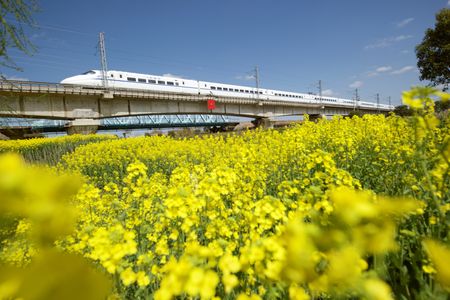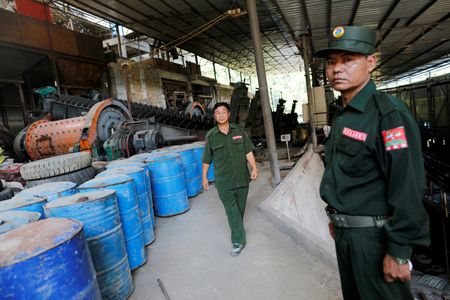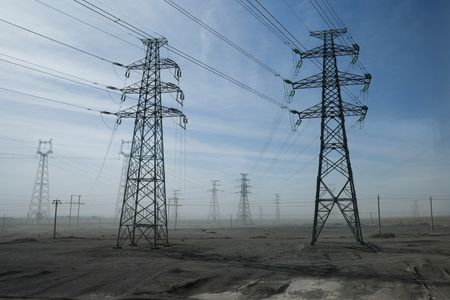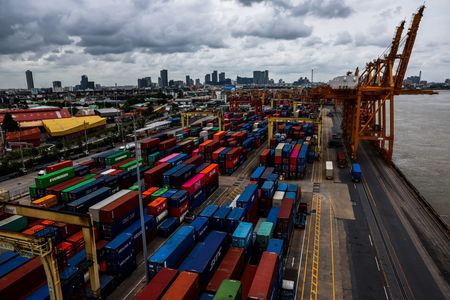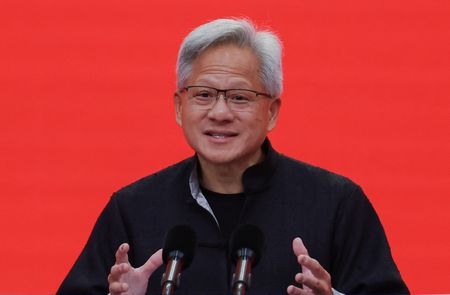(Refiles story to add bullets)
By Peter Hobson and Ella Cao
CANBERRA/BEIJING (Reuters) -Canberra is close to an agreement with Beijing that would allow Australian suppliers to ship five trial canola cargoes to China, sources familiar with the matter said, a move towards ending a years-long freeze in the trade.
China, the world’s largest canola importer, sources nearly all of its imports from Canada but those supplies could be limited by an anti-dumping probe Beijing is conducting.
China imposed 100% tariffs on Canadian canola meal and oil this year amid strained diplomatic ties.
Australia, the second-largest canola exporter, has been shut out of the Chinese market since 2020, mainly due to Chinese rules to stop the spread of fungal plant disease, but the trial cargoes could reopen trade and reduce Canada’s market share.
Chinese and Australian officials are finalising a framework to address Beijing’s phytosanitary requirements aimed at preventing the spread of blackleg disease, according to two Australian agriculture industry sources briefed on the negotiations.
“It looks like we’ve found a pathway that works for everyone,” said one of the sources.
“Now we need to run a few ships and see if it all works.”
The five trial cargoes will be handled by trading companies once the framework is agreed, the sources said.
Two trading company sources familiar with the negotiations said the shipments would carry between 150,000 and 250,000 metric tons of Australian canola, also known as rapeseed, to China.
The sources declined to be named as they were not authorised to speak publicly on the matter.
In response to a query from Reuters, Australia’s agriculture ministry said: “This is an active and ongoing government-government discussion and details have not yet been finalised.”
China’s Ministry of Commerce and General Administration of Customs did not immediately respond to a request for comment.
China has bought an average of 4 million metric tons of canola, worth over $2 billion, each year for the last five years, for use in cooking oil, renewable fuels, and animal feed.
Australian Prime Minister Anthony Albanese is currently visiting China, underscoring a warming of ties since his Labor government won power in 2022.
The planned shipments follow smaller test deliveries last year, when Australia exported 500 tons of canola to China in both June and July 2024, according to Australian trade data.
The negotiations have focused on addressing China’s requirement that canola shipments contain less than 1% admixture — impurities such as chaff and broken seeds – and its concerns of blackleg contamination, the two sources briefed on the talks said.
Unlike Canadian exporters, who clean their canola before shipping, Australian suppliers often exceed this limit.
Additional demand from China should lift Australian canola prices, traders said, but Australia may not be able to fully replace Canadian canola in China.
The Australian government expects the upcoming harvest later this year to produce 5.7 million tons of canola, the least in five years, due to unfavourable weather and a smaller planted area.
Of that, Australia will likely export around 4 million tons of canola, much of which may be earmarked for longstanding customers in Europe and elsewhere, said one of the trade sources.
“China might struggle to get more than their trial volume depending on how quick they move,” the person said.
China had 159,000 tons of imported canola in its stockpiles as of July 4, the lowest level for this time of year in nearly four years, said Zhang Deqiang, an analyst at Shandong-based Sublime China Information.
(Reporting by Peter Hobson in Canberra and Ella Cao in Beijing; Editing by Naveen Thukral, Tony Munroe and Saad Sayeed)

